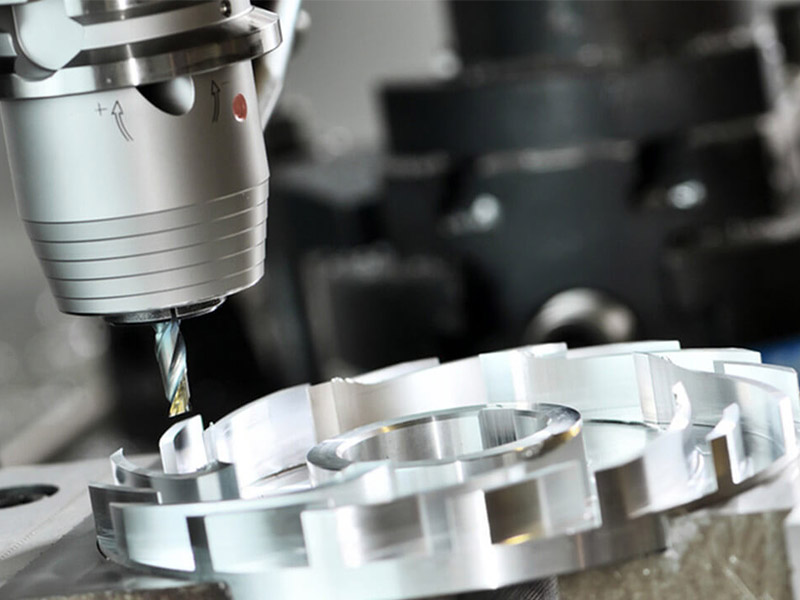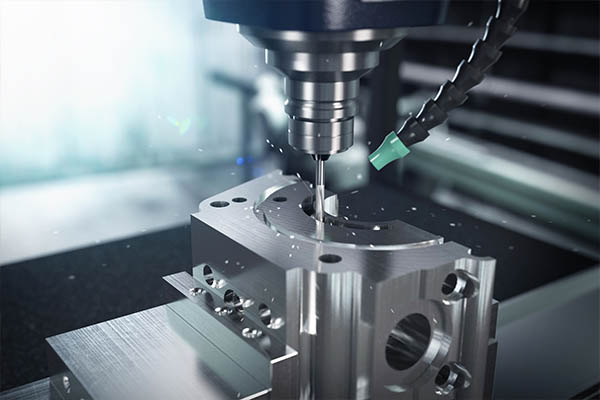CNC Milling Services: Reworking Trendy Manufacturing with Precision and Automation
CNC Milling Services: Reworking Trendy Manufacturing with Precision and Automation
Blog Article
CNC machining is one of the most transformational technologies available in the modern world of manufacturing. It has revolutionized the way manufacturing companies produce components and pieces providing a level accuracy, precision, and versatility that is not comparable to traditional techniques. CNC machining makes use of computerized controls and machines to carry out various functions like cutting drilling, milling and grinding of materials that range between plastics and metallics, as well as composites and wood. Through automation of the process, CNC machining eliminates many problems and inconsistencies related to manual operation. This results in a machine which can create highly precise components in a faster pace and with greater consistency, encouraging innovation across industries including aerospace, consumer electronics and even aviation.
The main benefit of CNC machining is its unparalleled precision and ability to produce intricate designs. Contrary to manual machining where the operator controls it, CNC machines follow the program to cut, shape, and sculpt materials with tremendous precision. This minimizes the risk of error by a significant amount, and allows manufacturing of products which are precisely designed. Complex geometries, intricate details, and tight tolerances can all be achieved using CNC machined parts, which makes it ideal for industries that require high standards in precision, for instance aerospace, where even minor variations in the parts could have grave implications.
Efficiency of CNC processing is yet another major element in the widespread use of CNC. The traditional machining techniques require experienced operators to control the machine, change the settings and switch equipment for every operation. This is not only labor-intensive, but it is also susceptible to human errors. CNC machining, on side, however, allows for the automation of these jobs, enabling machines to run continuously with little supervision. After the programme is established and the machine is loaded with the required material, it can perform multiple processes without interruptions, greatly reducing production times. CNC machines are also capable of operating 24/7, making them ideal for high-volume production runs. The efficiency of CNC machines allows companies to meet deadlines, improve their output as well as reduce the cost of labor in the process, while still maintaining top quality standards.
One of the main elements of CNC machining is using computer-aided designs and computer-aided manufacturing software. CAD software allows engineers to design precise 3D drawings of the items that will be manufactured, and CAM software converts these models into machine instructions. This seamless integration between production and design will ensure that the final product matches the design requirements originally set out. Additionally, the CAD/CAM software allows rapid prototyping. It allows companies to easily test and tweak their designs before committing to manufacturing in large quantities. Ability to change design concepts and develop prototypes give firms a competitive advantage in sectors where speed and innovation to market are essential. To acquire additional information please visit www.premiumparts.com/services/cnc-machining
CNC machining is also known for its flexibility in terms what materials it's able handle. From the metals such as aluminum, steel and titanium to plastics, wood and carbon fiber, CNC machines work with a wide range of different materials in order to make parts that can be used in a variety of applications. This versatility makes CNC machining suitable for a range of different industries and each one with its own specific material requirements. For example, the medical sector typically requires components made of biocompatible substances like titanium. Similarly, the automotive industry relies on durable metals like steel for engines and other components. Whatever the metal, CNC machines can deliver exact cuts and reliable results, ensuring that the product will meet the performance requirements and lasts requirements.
The impact on the environment on the environment CNC manufacturing is another factor to consider. Traditional manufacturing processes typically create a considerable quantity of waste materials, CNC machines are renowned for their high efficiency. In order to precisely cut and shape raw materials, CNC machining minimizes waste which reduces the material cost and environmental impact. Furthermore, the automated nature of CNC machines reduces energy consumption as compared to manual machining. Many modern CNC machines are built with sustainability in mind, making use of energy-efficient systems and motors to reduce their carbon footprint. This means that CNC processing an eco-friendly alternative for businesses looking for ways to decrease waste and conserving resources.